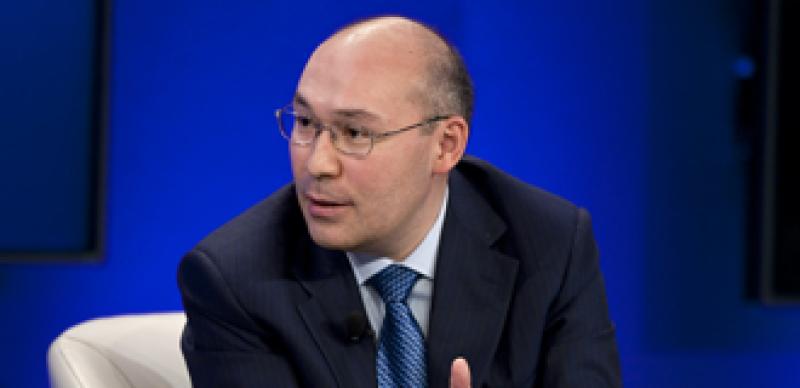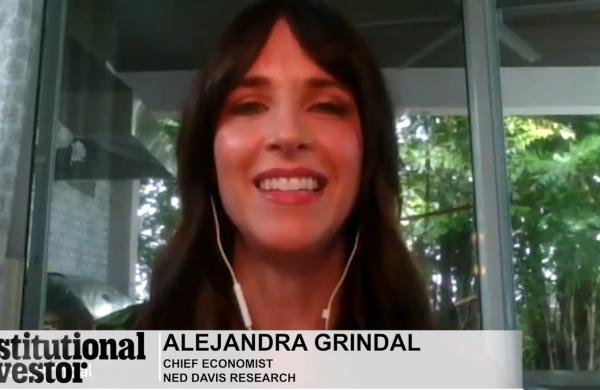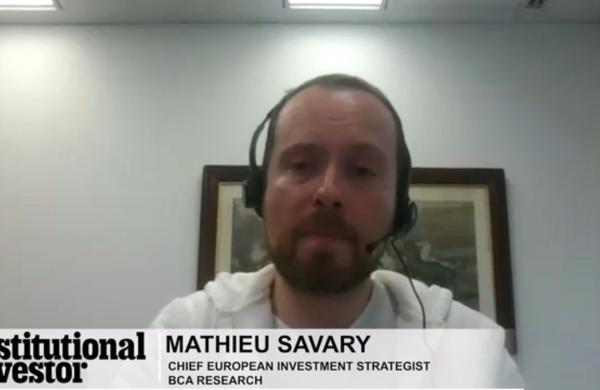Asked how many global investment banks have sent delegations trooping through his office over the past few weeks, Kairat Kelimbetov smiles gently. “All the major ones,” he answers.
Kelimbetov’s is one of those long surnames that emerging markets types might want to start committing to memory. He was just appointed as Kazakhstan’s economics minister in a cabinet reshuffle following Presdient Nursultan Nazarbayev’s latest all-but uncontested election victory. Before that he headed Samruk-Kazyna, the master state holding company whose 500-some subsidiaries account for about 40 percent of the Central Asian oil producer’s gross domestic product.
The impetus for the bankers parade was a speech Nazarbayev made back in February announcing his intention to conduct “People’s IPOs.” He listed half a dozen companies where the state might sell part of its shareholding, including the crown jewel, national oil company Kazmunaigas.
KMG is a highly interesting property for investors. Kazakhstan already pumps 1.5 million barrels of oil a day and is set to double that by 2020. Kelimbetov was assigned to work out the details of the prospective privatizations, and says he or his successors at Samruk-Kazyna will choose investment banking advisors by the end of April. Thus the sudden influx of financiers to Astana, the expensively renovated Kazakh capital where Stalinist esthetics now blend uneasily with Las Vegas gothic.
Nazarbayev is not generally a man who likes sharing control. Kazakhstan’s unchanged leader since Communist days, he just romped to a fourth term with a hair under 96 percent of the vote. So why the late-blooming enthusiasm for diluting the state’s dominance in strategic companies? The president explained his motivation in paternalistic political terms: He wants the population of 16 million to own a greater share of the national wealth. He would also like to kick-start a Kazakh stock market while he is at it. So the privatizations will start with local share issues aimed at or restricted to domestic retail investors. The first should come by the end of this year, Kelimbetov says in an interview with Institutional Investor.
But the economics minister also knows that dirigiste Kazakhstan needs heavy flows of external capital to fund huge petroleum projects like Kashagan, the Caspian oil field that could become one of the world’s most productive, or explore for new sources of copper and other metals as Soviet deposits dwindle. He is thought to be subtly pushing for international share issues on the back of the People’s IPOs.
Kazmunaigas will almost certainly not be the first Kazakh state property to come to market. Nazarbayev is more likely to start with the national railroad or utility monopoly, or perhaps the state‘s 26 percent stake in Kazakhmys, a copper producer that already trades on the London Stock Exchange. Nuclear operator Kazatomprom is also on the IPO list, an interesting potential play in a country that has surged to world leader in uranium production over the past decade. But events in Japan will probably push it to the back of the line.
One asset Kelimbetov would like to sell off but cannot for now is BTA Bank (formerly Bank TuranAlem), which collapsed amid alleged massive fraud two years ago and ended up in state hands by default. The soft-spoken technocrat with a passing resemblance to a younger version of the Dalai Lama proved to be a capable debt negotiator, forcing BTA’s foreign bank and bond creditors to take an $8 billion haircut. One of his advisors in those talks was Lazard Freres. The same Lazard team is now counseling Ireland’s new government, Kelimbetov notes.






